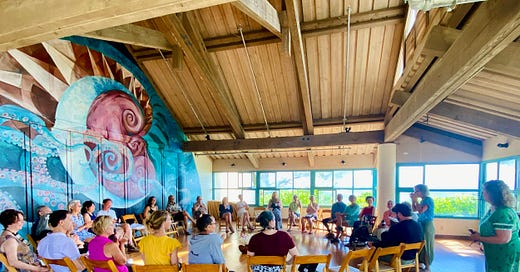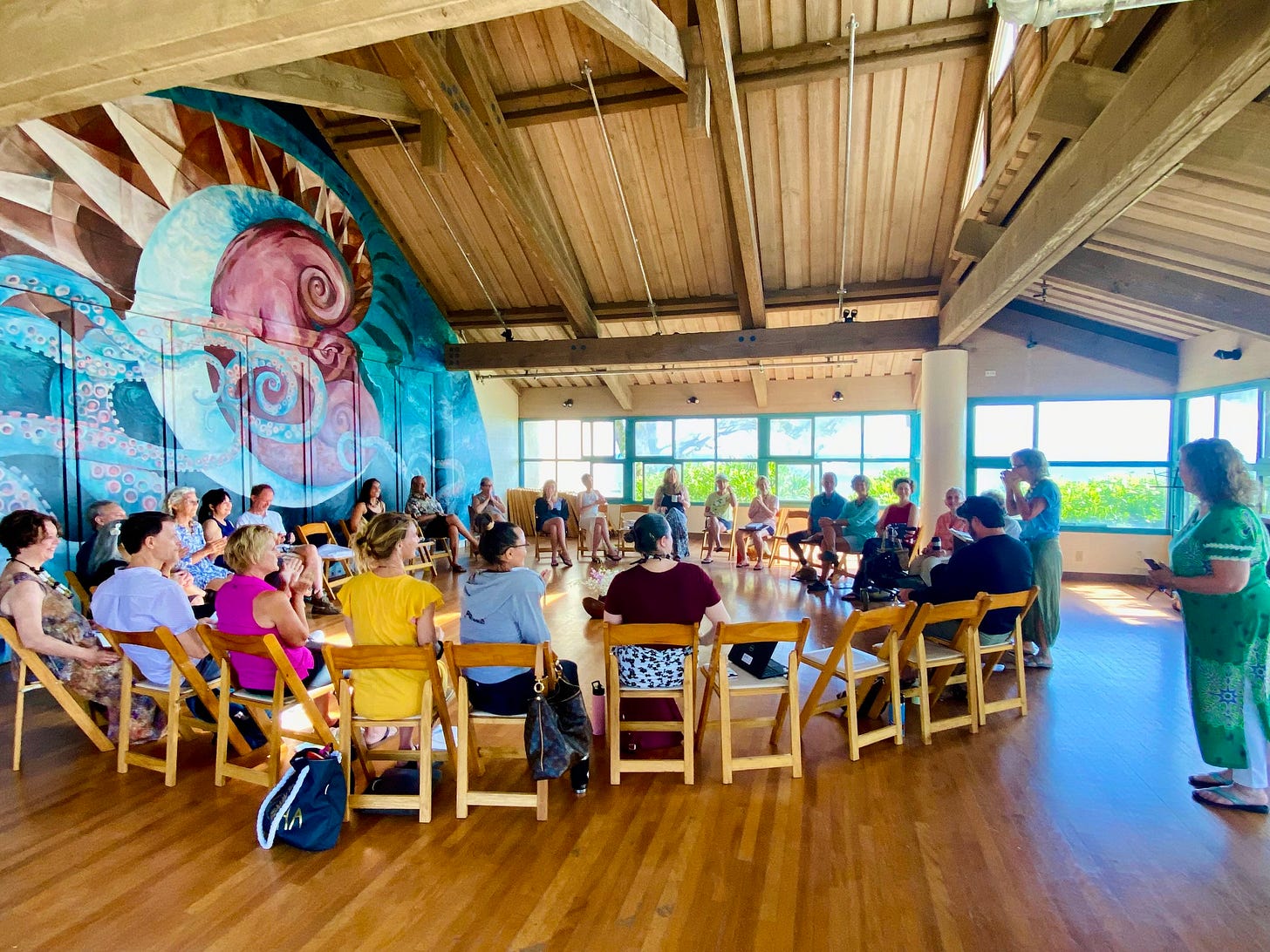What I Learned From My First Writers Retreat
Aloha! It’s been a week since I returned from the O’ahu Writers Retreat (OWR), and after overcoming jet lag and exhaustion, I wanted to share my thoughts on the experience and what I learned along the way.
I will say at the outset that I understand what a huge privilege it is to have the time and resources to put my passion first. Even if escaping to a tropical destination like O’ahu isn’t feasible given your own circumstances, I hope that you can find at least a few hours to put your phone on silent and devote yourself completely to your creativity.
That said, if you’ve always wanted to attend a writers retreat and have the means to do so, then consider this your sign to finally make it happen! And when you’re ready, keep the following tips in mind to make the most of your trip.
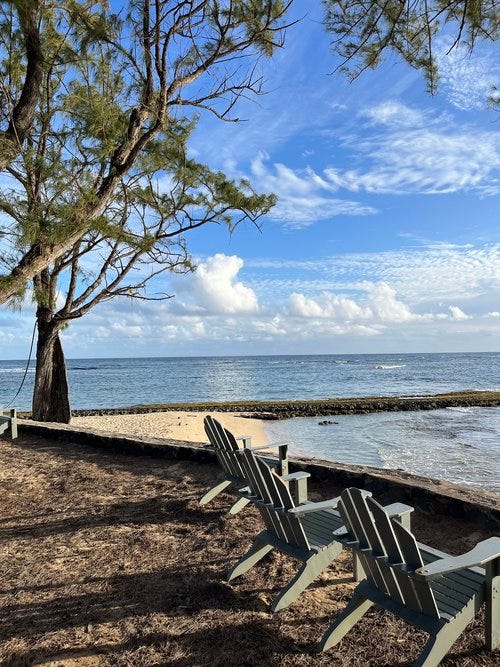
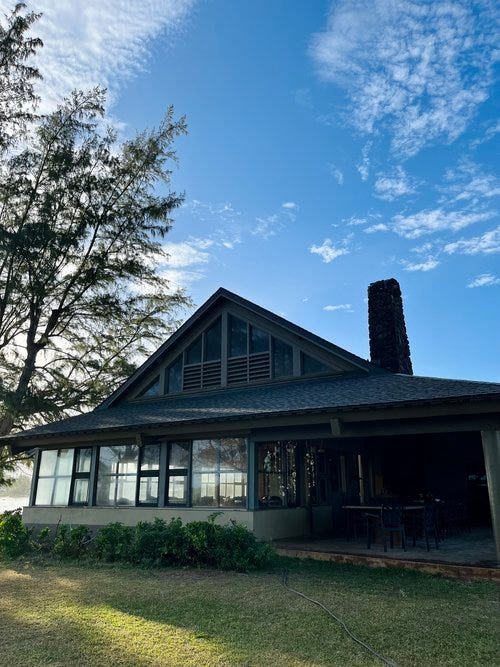
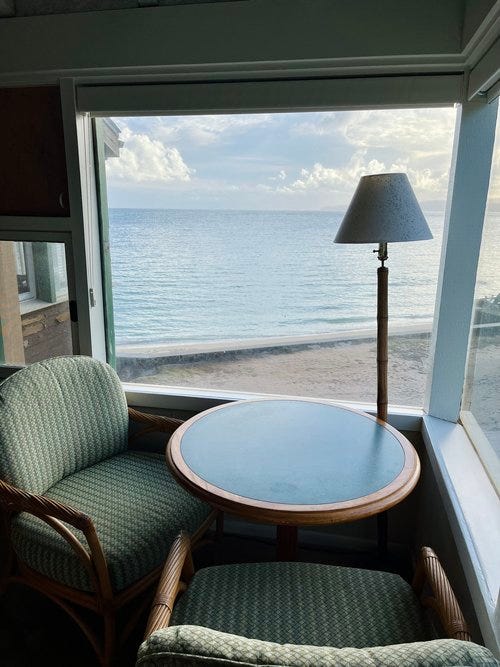
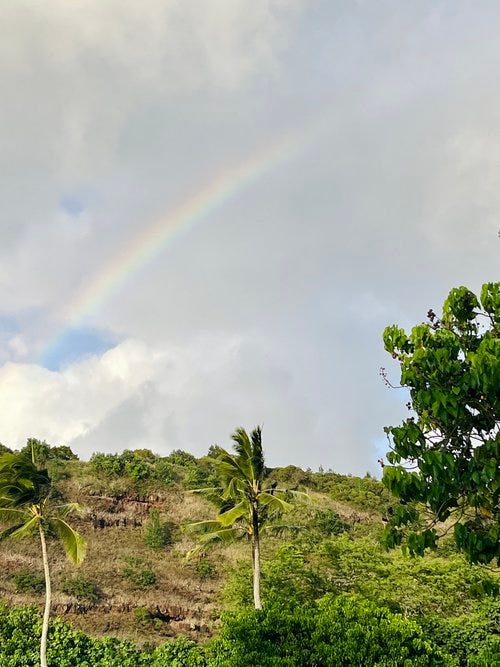
8 Tips to Making the Most of a Writers Retreat
Set your intentions (and budget) before you book. When I signed up for OWR in early February, I was clear about my intentions: I wanted to travel to a beautiful place I’d never been before that would provide me with a change in scenery, get me out of my comfort zone, introduce me to a community of like-minded writers, and motivate me to complete the first draft of my second novel. And after doing tons of research on available retreats, I was lucky that O’ahu checked all the boxes at an affordable cost ($1,300 for 5 days/4 nights including lodging, food, workshops and evening entertainment). Knowing why you want to attend will help you identify the right retreat for your wish list.
Make tangible goals before you go. A week prior, I discussed the retreat with my editor and determined my action plan: Finish the scene I was currently writing, complete a second scene, and start drafting a third. In terms of word count, I ideally wanted to write 10,000 words and hit the 80% mark of my first draft. Most importantly, however, I wanted to brainstorm my finale, which will soon propel me to knock out Act 3 and reach ‘The End.’ While I was only able to complete 6,000 words during the week (see my next point), defining what success would look like kept me on track to achieve the rest of my goals.
Be realistic about your productivity. Despite its name, it is very easy to not write at a writers retreat. Distractions abound—new sights to see, things to do, and people to meet. I could have locked myself in my room and forced myself to pump out tens of thousands of words, but I also wanted to enjoy my time in paradise. A retreat might not be a typical vacation, but this was the first somewhat-recreational trip I took by myself, so it was important to me that I live in the present moment and not recreate the unhealthy relationship I had with my day job. If you also suffer from workaholism, then a retreat can be a great chance to surrender your perfectionist tendencies and overwhelming urge to achieve—if you approach it with the right mindset.
Protect your time. That said, if I wrote nothing during the week, then that would feel like a failure no matter how lush the landscape. At OWR, I chose to skip out on the morning yoga sessions and optional drawing and songwriting workshops, and I retired to my room early in the evening to type up what I had written each day. You might have a craving to pack your schedule, but remember that you arrived with a mission, so don’t lose sight of it even when temptation calls.
Relish in a new routine. The weather was super windy on the North Shore and wifi was often spotty, but instead of lamenting the fact that it was impractical to plant my butt with my laptop outside, I enjoyed taking a notebook to the beach and writing longhand laying on the sand—with swim breaks between Pomodoro sprints. I even appreciated being without alcohol and limiting caffeine, because it allowed me to settle into the rhythm of island time. I can often be rigid with my routines, so it felt refreshing to shake things up and realize that the world would not, indeed, fall apart.
Keep your mind open. I loved how intimate the fiction workshop felt, with about eight of us writers diving deep into readings and lively discussions. We brainstormed book titles, debated writing outside of your own identity, and critiqued each other’s pitches. It was at times challenging to be the only romance writer in a group of memoirists and poets, but I was so grateful to break out of my genre bubble and receive valuable feedback from everyone. The best ideas often come from the most unexpected people and places!
When in doubt, remember, “Eddie would go.” One evening we had the immense pleasure of hearing from Stuart H. Coleman, OWR’s creative nonfiction instructor and biographer of Eddie Aikau, the first lifeguard of Waimea Bay who saved over 500 people before losing his life during a rescue mission. I had never heard the story of Hawaii’s biggest hero, and listening to Stuart at the memorial site was especially moving. Writing a book is nothing compared to the ordeals overcome by such a legend, but I came away with a newfound courage to put myself out there and be brave in the face of adversity on my path to publication.
Don’t forget to have fun! Mokule’ia is a sacred place, to be sure, but that doesn’t mean everything was serious all the time. All the little moments I let loose between writing sessions—watching crabs scuttle across the sand, getting knocked down by waves, making leis, sharing haikus—those are the ones I’ll cherish most from my first writers retreat and those are the ones destined to be in future books of mine.
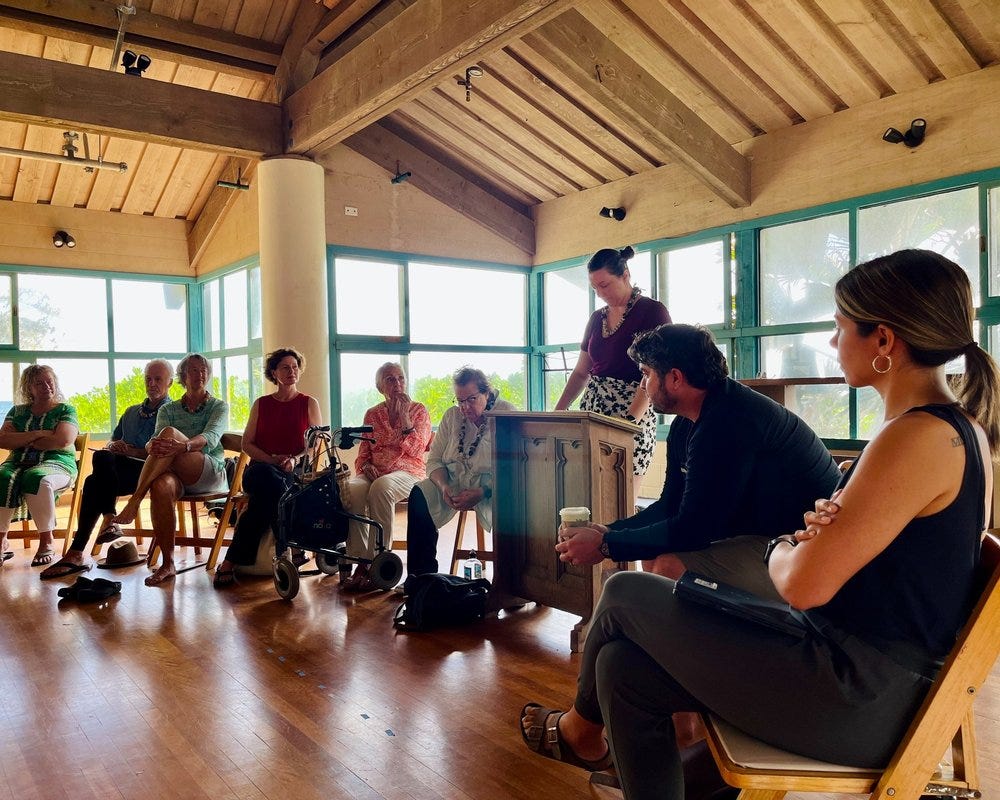
I’ve got a juicy newsletter coming out in the next couple of days, so if you don’t want to miss out on any of my writing reflections and entertainment recommendations, make sure to subscribe!

